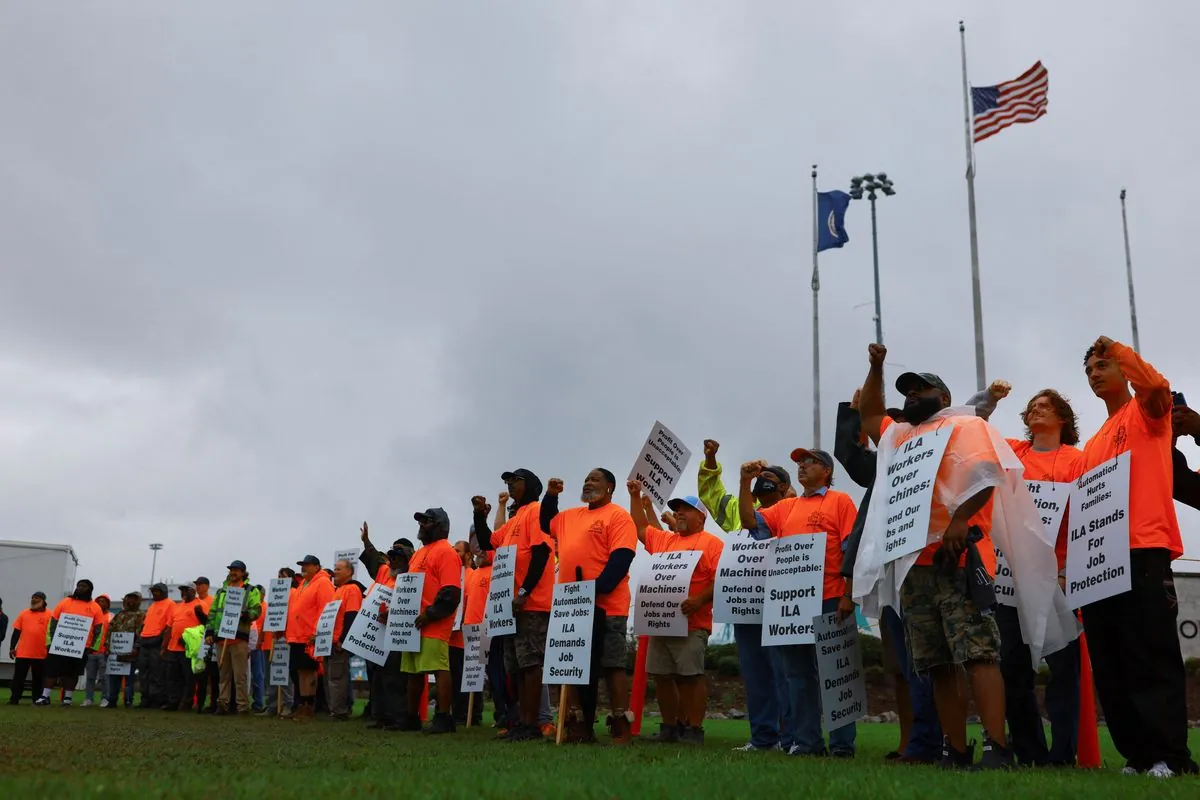In a significant labor dispute affecting 36 U.S. ports from Maine to Texas, President Joe Biden faces mounting pressure from manufacturers and retailers to utilize the Taft-Hartley Act to suspend a strike involving 45,000 dockworkers. This situation has brought attention to a decades-old law and its potential application in modern labor conflicts.
The Labor Management Relations Act of 1947, commonly known as the Taft-Hartley Act, provides the president with the authority to seek a court-ordered 80-day cooling-off period during which companies and unions can attempt to resolve their differences. This legislation, introduced by Senator Robert A. Taft and Representative Fred A. Hartley Jr., was enacted in the aftermath of World War II, following a series of strikes in 1945 and 1946.
The Taft-Hartley Act significantly altered the landscape of labor relations in the United States. It prohibited closed shops, which had required employers to hire only union members, and allowed workers to refuse union membership. The act also barred secondary boycotts, making it illegal for unions to pressure neutral companies to cease business with strike-targeted employers. Additionally, it established the Federal Mediation and Conciliation Service and required unions to provide 60 days' notice before striking.
Under Section 206 of the act, the president can appoint a board of inquiry to review labor disputes that may "imperil the national health and safety." This provision allows for the suspension of strikes or management lockouts through a federal court injunction, initiating an 80-day cooling-off period. During this time, both parties are required to make efforts to settle their differences.
Historically, presidents have invoked the Taft-Hartley Act 37 times in labor disputes. The Congressional Research Service reports that in about half of these cases, the parties successfully resolved their issues. However, in nine instances, workers proceeded with strikes despite the intervention. A notable example occurred in 2002 when President George W. Bush used the act to address a standoff involving 29 West Coast ports and the International Longshore and Warehouse Union.
Despite lobbying efforts from organizations like the National Association of Manufacturers and the National Retail Federation, President Biden has maintained his position against intervening in the current dockworkers' strike. This stance aligns with the general sentiment among labor unions, who widely oppose Taft-Hartley injunctions.
"Taft-Hartley injunctions are widely despised, if not universally despised, by labor unions in the United States."
The political implications of using the Taft-Hartley Act are significant, especially considering the upcoming election. Vice President Kamala Harris is relying on support from organized labor in her presidential campaign against Donald Trump. The Biden administration appears to be prioritizing labor union support over potential short-term economic impacts of the strike.
As the strike continues, there is potential for increased pressure on Biden to change his stance, particularly if consumer shortages become widespread. However, experts suggest that at this stage of the election cycle, voter turnout may be more crucial than swaying undecided voters. This factor further complicates the decision-making process for the administration regarding the use of the Taft-Hartley Act.
The ongoing situation highlights the complex interplay between labor rights, economic concerns, and political considerations in modern America. As the strike progresses, all eyes remain on the Biden administration's approach to this significant labor dispute and its potential ripple effects across the nation's economy and political landscape.
